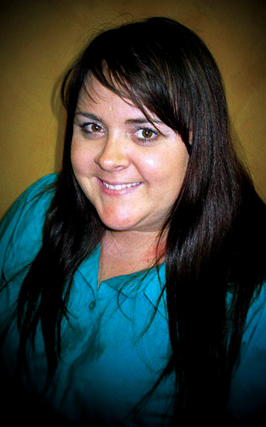Culture
Tribal member Ashley Tuomi heads urban Native group in Michigan

Tribal member Ashley Tuomi, who turned 28 in February, has been named executive director of American Indian Health and Family Services of Southeast Michigan.
She came to AIHFS from United American Indian Involvement Inc. in Los Angeles where she served as associate director of Health Services.
"I think I really have a passion for Indian health services," she said recently in a phone interview. "All throughout school, everything I did was Indian health services. I was dedicated to learning the services and jumping right in."
As executive director, she oversees clinical services, behavioral health, youth programs and preventive health programs. AIHFS takes on the challenges of being an urban Indian with scant federal funding from Indian Health Service.
More than half of American Natives live in urban settings nationwide, but the agencies serving them receive about 1 percent of federal funding, she said.
The group also receives other federal allocations as well as state grants, private funding and medical insurance.
One of the challenges of serving the urban Native population is that clients represent a wide range of Tribes. "It's not just one culture, but all the Native cultures across the country," she said.
Members of federally recognized Tribes receive more and better services from their Tribes, she said.
Tuomi still sees value in her work. "We provide a home for them where they can get all of the services that they need, including youth programs and cultural activities. We create a second home for urban Indians."
"Urban Indians experience a lot of the same challenges as on the reservation," she said. But urban Indians also face other challenges. "A lot of the challenge for them is being away from their homes, their own cultural teachings and advisers. The actual ceremonies are different. They don't always get access to their Tribes. Some don't have the digital presence where they can be as involved, and they can feel secluded."
AIHFS serves 975 active patients with about 2,000 visits a year.
The biggest challenge she faces today is "getting more experience with behavioral health," she said. She attends conferences showing ways to integrate behavioral health into the clinic.
"One of the other things we're doing is the medical home (within clinic) model, making sure that patients are receiving care and all of the services they need and seeing the same people all the way through.
With a master's degree in hospital administration from Washington State University, Tuomi did an internship with the federal Centers for Disease Control and Prevention on a project called "Reach 2010," addressing health needs in minority populations.
She ensured that federal guidelines regarding screenings for cancer and diabetes and guidelines for care were met.
"I was working with individual Tribes who had grants under the CDC program; I helped in assisting with data and grant requirements. The other big thing is they didn't have any Native staff on that program. So I got to provide information about Indian health services."
She wasn't always interested in the line of health care where she has landed, she said.
"As a kid and through undergraduate school, I was going to be a plastic surgeon. I just kind of hit this point and decided to change and went in for a master's in Health Administration. I got the Indian Health Service scholarship and switched my whole focus."
She applied for the Indian Health Service scholarship for extra funding in 2006, halfway through her master's program.
Part of the change came because there was a payback requirement to the scholarship: one year of service for every year of the scholarship with a two-year minimum.
She finished her two years back in 2009, but her work in IHS-related fields continued.
Today, she is working on her doctorate in Health Sciences and anticipates finishing the work next year.
"I'm on the Leadership and Organizational Behavior track. And that will help me in continuing my health administration and policy role."
She also expressed gratitude for scholarship funding she received from the Tribe "throughout all of my schooling, all three degrees," she said.
"My family is really big to me," she said, and remembers "the crafts I learned at the Eugene satellite office" when she was back home for a year in 2011-12.
When she was younger, she participated in Royalty, and that, she said, was what "gave me the confidence and experience for where I'm at today."
